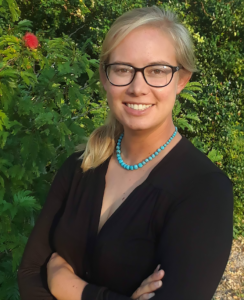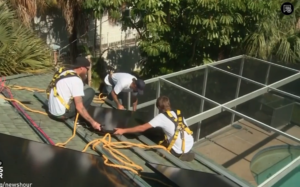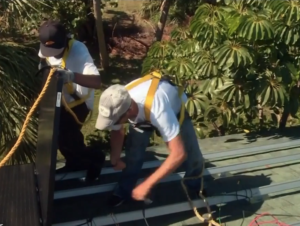
For low- or moderate- income homeowners, improving the energy efficiency of their homes can be a chicken-and-egg issue.
Their water and power bills are higher than they should be, so they can’t afford to install insulation, high-efficiency windows or water-saving fixtures – creating a vicious circle that can be nearly impossible to escape.
A new effort by the city of St. Petersburg using funds from the Deepwater Horizon oil spill hopes to change that. Rather than judging a resident’s ability to repay a loan solely by his or her credit scores, the Solar and Energy Loan Fund (SELF) judges families differently, said Jessica Lewis, clean energy loan officer. “We look at their discretionary funds and their commitment to repaying us,” she said.

Loans typically range from about $5,000 to $12,000 with interest rates from 5 to 9%. For families with low credit scores, interest through traditional banks can range up to 20%, assuming a bank will even approve the loan, she said.
“We’re a boots-on-the-ground organization focused on helping low-and-moderate income families lower their energy bills – while improving sustainability and the ability of residents to combat the effects of climate change,” Lewis said. “We can’t work with everyone, because you do need to be able to repay the loan, but we’re much less expensive than bank financing for many people.” Renters are not eligible for the program, but landlords may be because there is no limit on the upper end of income, she adds.
Since it was formed with an investment from St. Lucie County in 2010, fewer than 1% of SELF loan recipients have defaulted because of its approach, Lewis adds. The program expects to be self-sustaining in St. Petersburg by the time the 3-year, $100,000-per-year grant from the city expires. It also is working with faith-based organizations, banks and private investors to reach a goal of $3 million in sustainable home renovations in the city over the next three years.
Energy Efficiency Top Priority

It’s not a brand-new effort. The city of St. Petersburg had been searching for a way to reach out to lower-income homeowners for several years, notes Sharon Wright, the city’s sustainability coordinator. “Our goal is to run on 100% clean renewable energy and this is an important first step. It will help poor and working-class families participate in and benefit from the city’s initiatives and opportunities contributing to our overall resiliency efforts.”
While SELF funds solar power, it’s more focused on energy efficiency in St. Petersburg, said Lewis. “We’ve learned that many houses in the poorer areas of St. Pete need to be more energy efficient before their owners start investing in solar power, but we can help with low-interest loans on new windows, better insulation, water-efficient toilets, weatherization, lateral sewage lines or even a new solar-ready roof if that’s what the homeowner needs most.”
The program officially began operating late last year, so Lewis doesn’t have any success stories to share yet, but she is now in the process of meeting with homeowners associations across the city – all 110 of them – so their residents know about the program.

Contractors Wanted
Lewis is also lining up contractors who meet the stringent standards of the program to be included on a list of approved vendors. An initial meeting for residential contractors is scheduled for Wednesday, January 24, from 6 to 7 p.m. at 1201 7th Ave S. in St. Petersburg.
“Contractors who work with us report significantly higher rates of approval than they would have otherwise, because we look beyond the basic credit score,” Lewis said. She also expects to work with the Tampa Bay Black Business Bureau, the Pinellas County Ex-Offender Re-Entry Coalition and the Pinellas Technical College to build partnerships that help create better-paying jobs in the communities SELF serves.
For more information, along with an extensive list of the water- and energy-saving projects SELF will fund, visit www. http://cleanenergyloanprogram.org/ or contact Lewis at jessical@solarenergyloanfund.org.
[su_divider]